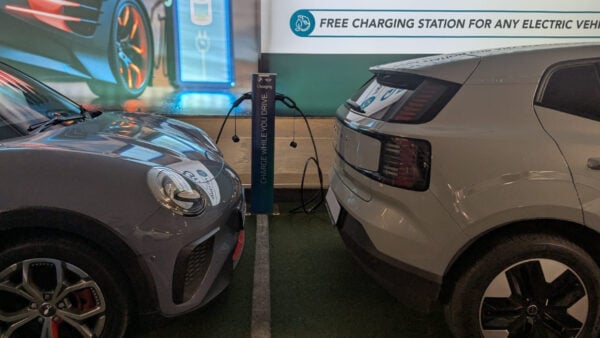Large South African city using cameras and drones to stop crime

The City of Cape Town’s surveillance network of CCTV cameras and drones is proving an invaluable tool to crack down on crime in the municipality, helping to make several arrests in the past weeks.
“The expanded use of digital tools to complement enforcement efforts has become part and parcel of our public safety operations,” said Mayoral Committee Member (MCM) for safety and security JP Smith.
“These tools display their worth time and again, as we saw this past week, when CCTV and drone operators led teams on the ground to criminal acts in progress.”
Cape Town reported its statistics from the beginning of May, noting that it made 235 arrests in the first week, several of which were thanks to the assistance of drone and CCTV operators.
In one incident, the City said it arrested two individuals who were identified as smoking what CCTV operators suspected to be an illegal substance.
Upon the arrival of responding officers, the two, aged 31 and 40, were found to be in possession of mandrax.
In a similar incident, CCTV operators played a role in the arrest of a 50-year-old man who was found in possession of mandrax and a knife.
“Not only does it increase the chances of criminals being caught red-handed, but the video evidence can be the key to a successful prosecution,” Smith said.
“The aerial tools also improve situational awareness for staff on the ground, by offering a far broader view of potentially dangerous situations, and how to address those.”
The City mentioned the use of CCTV footage to arrest a Mercedes-Benz driver who was captured driving through a barrier and crashing into a tree. It was found that he was three times over the legal alcohol limit.
However, Smith recently said that prosecuting individuals using CCTV footage is difficult because the cameras only capture segments of the offence, making it difficult to prove “exactly what you’re looking at.”
Using footage from the Internet

On the other hand, using video footage from social media and parts of the Internet to prosecute offenders is not as simple.
While numerous videos have surfaced of supercar drivers disobeying the rules of the road in Cape Town, Smith says the city cannot do much to act and reprimand those identified on the Internet.
“The criminal justice system is not on our side in this regard,” Smith said.
“The courts want these videos verified; in other words, the person who made the video must testify, which in this case is not going to happen.”
The video in question showed someone in a Ferrari supercar challenging another driver to a drag race at a traffic light in broad daylight on Beach Road in Sea Point.
Smith said that if someone records an incident like this using their dashcam or cellphone, they must submit it personally as evidence and then testify in court.
He argues that the National Prosecuting Authority does not deem the metro to have investigative power. Therefore, those submitting video footage as evidence must lay a charge with the South African Police Services.
The alderman added that the City of Johannesburg ran a pilot project that invited people to submit video evidence, which Smith said Cape Town kept track of.
“It had very limited success precisely because very few people were willing to repeatedly go and sit in court because the cases are often postponed,” Smith said.
“This is because courts require the person who recorded the video to give evidence of how they recorded it and that it is the original, unaltered and untampered video.”
However, Smith said the City of Cape Town is conducting its own set of tests involving arrests based on social media hearings, with the first hearing set for 18 May.
He added that these arrests involved videos taken in the offenders’ cars and posted to their social media accounts.
































